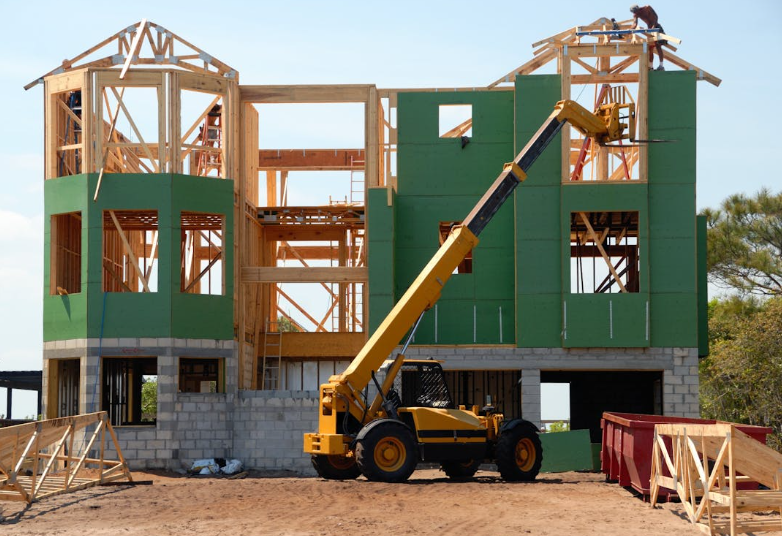
Designing and building a custom home is an exciting, albeit daunting, undertaking. For many, it’s a chance to create a living space that perfectly aligns with their vision and lifestyle. However, the path from blueprint to reality is filled with decisions and considerations that often go overlooked. This blog post explores some of the lesser-known factors you should consider when building your custom home. By the end, you’ll have a comprehensive understanding of what it truly takes to design a home tailored to your unique needs.
Site Orientation and Natural Light
When planning a custom home, the orientation of the building on your plot can have a significant impact on your living experience. Positioning your home to optimize natural light reduces energy costs and enhances the ambiance of your interior spaces. Consider how the sun moves across your property throughout the day. South-facing windows will capture more sunlight, making them ideal for living areas. Conversely, placing bedrooms on the east side will ensure morning light without the harsh afternoon sun.
Future-Proofing Your Home
While it’s easy to focus on immediate needs, thinking ahead can save you time and money in the long run. Consider incorporating elements that make your home adaptable to future changes. This could include installing broader doorways for accessibility, creating multi-purpose rooms, or even setting aside space for potential future expansions. Forward-thinking designs ensure your home remains functional and beautiful as your needs evolve.
Efficient Space Planning
Maximizing space efficiency is key to creating a harmonious home environment. Prioritize open floor plans that offer flexibility and encourage social interaction. Think about how each room will be used and plan accordingly. For instance, a kitchen island can serve both as a cooking space and an informal dining area.
Smart Home Technology Integration
Incorporating smart technology into your custom home design can significantly enhance convenience and security. From automated lighting and climate control to security systems and entertainment setups, integrating these technologies during the construction phase is more cost-effective than retrofitting them later. Consider future-proofing your home with wiring and conduits to accommodate technological advancements.
Sustainable and Eco-Friendly Materials
Choosing sustainable materials is not only beneficial for the environment but also for your health and comfort. Look for materials with low VOC emissions to ensure good indoor air quality. Recycled and reclaimed materials can add unique character to your home while reducing your carbon footprint. Additionally, consider energy-efficient appliances and fixtures to lower your utility bills and create a greener home.
Landscaping and Outdoor Spaces
Your home’s exterior is just as important as the interior. Thoughtful landscaping enhances curb appeal and provides functional outdoor living spaces. Plan for gardens, patios, and walkways that complement your home’s design. Native plants and drought-resistant landscaping require less maintenance and water, making them both eco-friendly and cost-effective.
Storage Solutions
Storage is often an afterthought, but it plays a crucial role in maintaining an organized and clutter-free home. Work with a professional custom home building service like Sherman Homes to include ample storage options in your custom design, such as built-in closets, under-stair storage, and attic spaces. Customized cabinetry and shelving can maximize storage efficiency and blend seamlessly with your home’s aesthetic.
HVAC and Air Quality
Ensuring proper ventilation and air quality is essential for a healthy living environment. Invest in a high-quality HVAC system that includes humidity control and air purification. Proper ductwork design and insulation will ensure efficient heating and cooling, reducing energy consumption and improving comfort.
Noise Control
Noise can significantly impact your home’s comfort levels. Consider soundproofing measures such as double-glazed windows, insulated walls, and solid-core doors. These options help minimize noise from outside and between rooms, creating a more peaceful living environment.
Personalized Aesthetics
While functionality is paramount, aesthetics make your home uniquely yours. Work with designers to select finishes, colors, and textures that reflect your personal style. Custom details such as unique moldings, bespoke furniture, and personalized artwork add character and warmth to your home.
Financial Planning and Budget Management
Building a custom home requires careful financial planning. Establish a realistic budget that includes a contingency fund for unexpected expenses. Work closely with your builder and financial advisor to ensure all costs are accounted for, from initial design to final finishes. Transparent financial planning helps avoid surprises and keeps your project on track.
Warranty and Maintenance
Consider the long-term maintenance and warranty of your home. Choose builders and contractors who offer comprehensive warranties and stand by their work. Regular maintenance schedules for systems like HVAC, plumbing, and roofing will ensure your home remains in optimal condition for years to come.
Community and Surroundings
The location of your custom home is just as important as its design. Consider the surrounding community and amenities. Proximity to schools, healthcare facilities, and recreational areas can significantly impact your quality of life. Additionally, research local zoning laws and future development plans to ensure your investment remains sound.
Building a custom home is a complex, multifaceted process that requires thorough planning and consideration. By addressing these often-overlooked aspects, you can create a home that is not only functional and beautiful but also adaptable to your future needs. Your dream home is more than just a structure; it’s a living space that reflects and enhances your lifestyle. Take the next step towards your perfect home by exploring further resources or consulting with experienced professionals who can guide you through every stage of this exciting journey.


